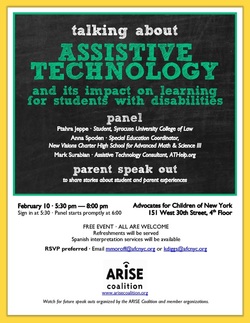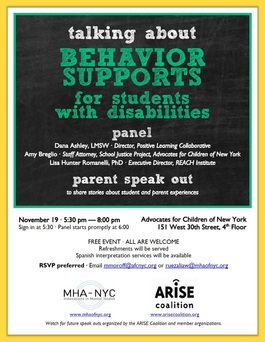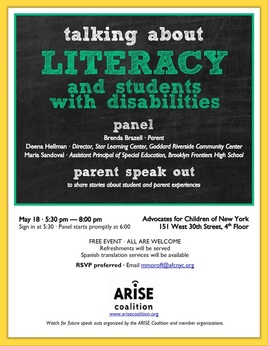Improving the quality of literacy instruction is a matter of racial, economic, and disability justice. Literacy is the foundation for all future learning and essential for full participation in civic life. Yet more NYC students are reading below a basic level than are reading proficiently, and disparities by race, disability, language, and housing status are alarming.
We hope you'll join us as we bring together diverse stakeholders and experts from around the country to explore current challenges in reading instruction, strengthen our commitment to advancing equitable outcomes for all students, and plan for the future.
Register for the Summit
Join the Call to Collective Action
Browse AFC's literacy resources
AGENDA
View the full program & speaker bios [PDF]
10:00 – 10:15 | Welcome
10:15 – 10:45 | Keynote Address
Lacey Robinson, Chief Executive Officer, UnboundEd
11:00 – 12:00 | Evidence-Based & Culturally Relevant Practices: Working at the Intersection for Equity
Dr. Linnea Ehri, Distinguished Professor, CUNY Graduate Center
Dr. Katie Pace Miles, Assistant Professor, Brooklyn College
Dr. Susan B. Neuman, Professor, New York University
Dr. Julie Washington, Professor, University of California – Irvine
12:45 – 1:45 | All means ALL: Diversifying Literacy to Meet the Needs of Every Student
Dr. Nadine Gaab, Associate Professor, Harvard Graduate School of Education
Dr. Jan Hasbrouck, Researcher, Educational Consultant, and Author
Dr. Devin Kearns, Associate Professor, University of Connecticut
Dr. Claudia Rinaldi, Professor of Education, Lasell University
2:00 – 3:00 | How Do We Move Forward: Understanding the Shared Responsibility Around Literacy
Jenny Bogoni, Executive Director, Read by 4th Campaign at the Free Library of Philadelphia
Dr. Kymyona Burk, Senior Policy Fellow, ExcelinEd
Margaret Goldberg, Co-founder, The Right to Read Project
Dr. Tracy Weeden, President and CEO, Neuhaus Education Center
Katie Kurjakovic, Assistant to the Vice President for Education, United Federation of Teachers
Maggie Siena, Principal, P.S. 343 The Peck Slip School
3:15 – 3:30 | Closing Remarks
Chancellor Meisha Ross Porter




